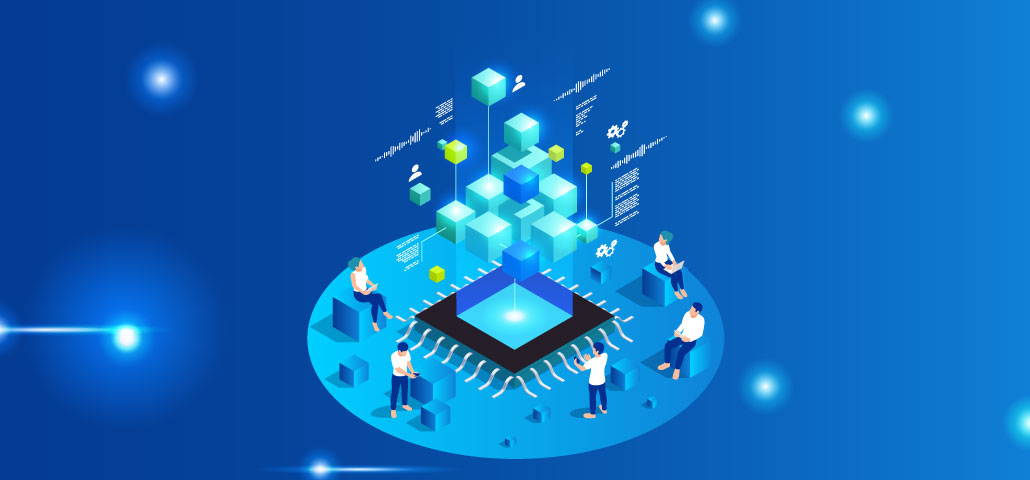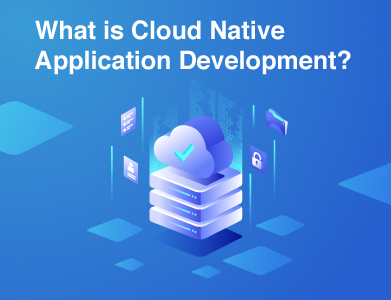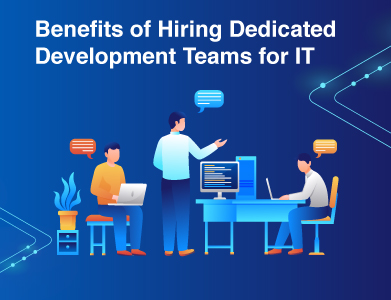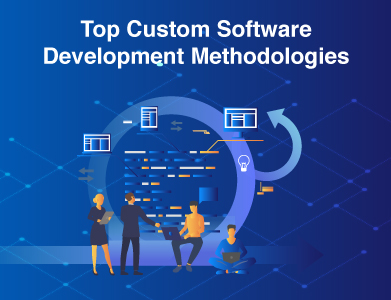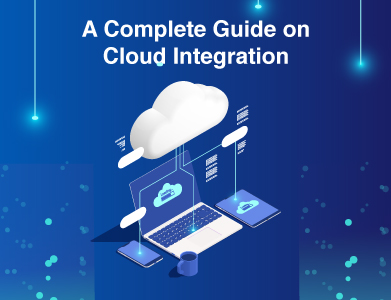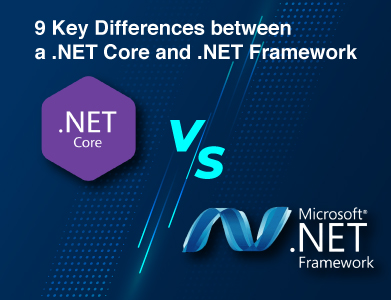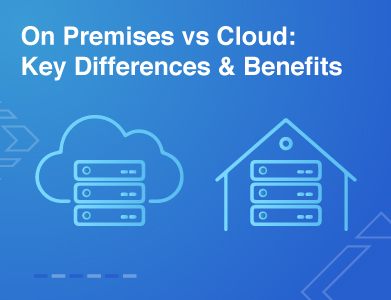In the past few years, "digital transformation" has become a catch-all phrase. In basic terms, it includes integrating digital technology into every aspect of a company's operations, drastically changing how it functions and provides value to its clients.
It's a culture transformation as well, one that calls on businesses to experiment, accept failure, and never stop challenging the existing quo. Digital transformation is growing at an exponential rate due to disruptive technology, which includes automation, cloud computing, artificial intelligence, and technological advancements. These developments show no indications of stopping.
In this blog, we'll examine the key developments that could influence digital transformation services in 2025 as well as the most significant trends that will affect it.
Digital Transformation Trends For A Competitive Edge
Here are the most predictive Digital Transformation Trends for 2025. Have a look:
Machine learning and Artificial intelligence
The second year of generative AI technologies' broad acceptance is about to begin. Because of this, businesses are becoming more and more interested in learning how to use the whole range of ML and AI technologies to enhance their operational procedures.
It seems more and more likely that in the upcoming years, artificial intelligence will show off a wide range of applications where it will complement human labor and simplify jobs rather than displacing significant portions of the labor force.
Machine learning will also be a valuable tool for data-driven businesses looking to maximize the effectiveness of their data analytics methods. This allows them to deal with market and environmental concerns that may create delays in the delivery of completed items, raw supplies, or both. Nonetheless, organizations still rely on humans to make judgments about what to do after ML analysis of data.
Read More: AI in Digital Transformation
Automation and No-Code Efficiency
While some firms have already started applying automation in line with the trends of digital transformation, we anticipate a more general acceptance of the technology in the upcoming years.
A Deloitte survey states that 53% of businesses have already started using robotic process automation (RPA). According to Gartner, businesses can reduce their operating costs by 30% by using hyper-automation by 2025.
Although everyone wants to automate their work, businesses must prioritize cost-effectiveness due to the current economic climate. The goal of automation is to create workflows that minimize the amount of time spent on tasks, encourage efficient growth, and enable more to be accomplished with fewer resources.
Explore More: RPA vs BPM
5G
The fifth generation of mobile communications is here. We are going to get amazing speeds from the 5G network, with response times reportedly as little as one milliseconds. However, 4G was previously up to 200 milliseconds. The widespread adoption of 5G will be extremely advantageous for all internet-based businesses that rely on the Internet of Things.
With 5G, businesses can expect more stable mobile networks, higher internet connections, and a more connected future. The technology will provide increased bandwidth, wider installation, improved security, and greater dependability.
Cybersecurity
Because so many services are now provided online, businesses are more vulnerable to cyber-attacks. An organization's current security posture, which was designed for less dispersed workers using older technology, is probably not going to perform well in the current climate.
Organizations are embracing the "shift-left" trend as one strategy to combat cybersecurity head-on. With this strategy, cybersecurity issues are more firmly incorporated into the code from the beginning of the development cycle.
The blockchain, which can improve data integrity and secure transactions, is another method that businesses are experimenting with cutting-edge security measures.
Learn Further: Benefits of Digital Transformation
The Growing Significance of AR/VR
In 2024, owing to their rising affordability, augmented reality (AR) and virtual reality (VR) technologies will become more and more popular. As these technologies have developed, equipment and development costs for AR and VR have dropped dramatically, opening up these technologies to a wide range of consumers and enterprises.
With virtual try-ons and home previews, AR and VR will revolutionize shopping experiences and improve customer satisfaction and engagement in e-commerce and retail. Furthermore, models that take into account customer motivations, experience, and expertise will be required in the case of immersive technologies (augmented reality, AR, and virtual reality, or VR).
Enterprise Resource Planning
The focus of digital transformation services providers is mostly on instituting a new organizational culture. It involves a blend of technology, procedures, and people. Therefore, firms should place similar emphasis on developing intelligent Enterprise Resource Planning (ERP) as they would on developing effective media arms or channels to sell services.
ERP can lower costs, increase production, and improve resource efficiency. Even if you may have previously made investments in tools and technology, it's now time to concentrate on your back-office operations for ongoing improvement to achieve quantifiable outcomes and high profitability.
Integration of IoT
The spread of the Internet of Things (IoT) will speed up efforts to undergo digital transformation even if it has always been disruptive. IoT device integration into the fabric will need to pick up steam to facilitate data sharing across physical things and guarantee smooth communication.
In this manner, information on the operations of the processes may be gathered, enabling the optimization of business processes and the introduction of cutting-edge services to make them more effective. As an illustration, manufacturers can use IoT in their factories to determine when preventive maintenance, or machine repair, is necessary.
Explore Further: Software Development Trends
Final words
The digital transformation trends of 2025 are expected to make substantial changes to how organizations and individuals engage with technology. With these developments, businesses may expect to streamline processes, increase productivity, and improve client experiences. However, these tendencies must be approached with carefulness and respect for the ethical concerns they may bring. These trends are impacting education, healthcare, finance, and many other industries.
If you are in search of some consulting firms that can assist you with Digital Transformation Consulting, then look no further. Prioxis is here to assist you with your requirements.
Get in touch with us now.
01What are the main digital transformation developments projected in 2024?
Expected developments include more acceptance of artificial intelligence (AI) and machine learning, advancements in the Internet of Things (IoT), increased usage of edge computing, accelerated growth in cloud-native technologies, no-code technology, and an increase in cybersecurity measures.
02How will edge computing affect digital transformation?
In 2024, predict edge computing to: Smarter IoT (Internet of Things): Real-time data analysis will lead to more efficient factories and cities. Smoother AR/VR: Reduced lag leads to a more immersive customer experience in retail, healthcare, and entertainment. Optimized Operations: Faster data analysis improves efficiency in industries such as manufacturing and shipping.
03How will AI and machine learning affect digital transformation in 2024?
AI and machine learning will improve decision-making processes, automation, and predictive analytics across sectors, improving operations and efficiency.
